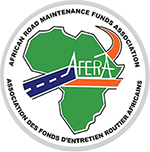This category includes the General Assembly and the Executive Committee. These are the highest-level stakeholders, responsible for providing leadership, governance, and strategic oversight for all road infrastructure projects.

ARFMA-AFERA Organizational Structure & Stakeholders
Governance for African Road Funds
ARFMA-AFERA operates through a meticulously defined governance and operational structure, supported by a diverse and committed network of stakeholders dedicated to its mission of enhancing African road maintenance funds and road infrastructure development. The General Assembly (GA) stands as the supreme governing body of ARFMA-AFERA, comprising all Road Maintenance Funds that are members of the Association. The GA holds the ultimate authority to deliberate and make decisions on all matters concerning the governance, strategic direction, and operational aspects of ARFMA-AFERA, ensuring alignment with the overarching goals of sustainable road asset management across Africa.
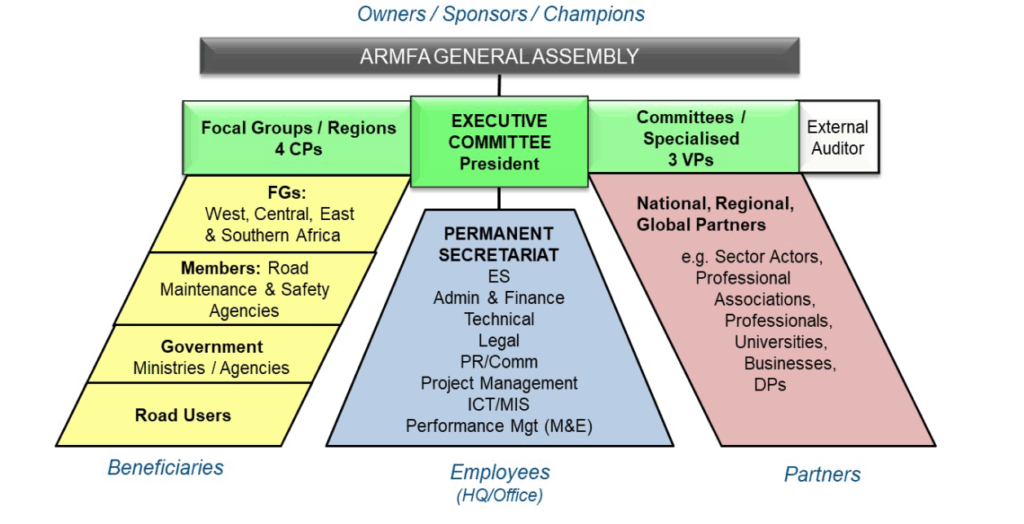
Organs of the Association
The key organs of the Association, as formally defined by its Bylaws and General Assembly Resolutions, are integral to its effective functioning:
1. The General Assembly (GA):
This is the supreme decision-making body, composed of all member Road Maintenance Funds, responsible for setting the strategic direction for African road networks.

2. The Executive Committee:
Tasked with overseeing the implementation of decisions made by the General Assembly and providing crucial strategic direction for road maintenance initiatives.

3. The Permanent Executive Secretariat:
Manages the day-to-day operations of the Association under the leadership of the Executive Secretary, ensuring efficient execution of programs related to road infrastructure development.

4. Other Bodies:
These include specialized ad hoc committees and regional focal groups, established in accordance with the Bylaws and approved General Assembly resolutions, to address specific needs in African road maintenance.

ARFMA-AFERA Stakeholder Categories
ARFMA-AFERA’s stakeholders are strategically grouped into four main categories, each playing a vital role in the success of African road maintenance funds:
-
1. Owners / Sponsors / Champions
-
2. Employees (Headquarters / Office)
Represented by the Permanent Executive Secretariat, under the leadership of the Executive Secretary. This group is responsible for the daily management and coordination of ARFMA-AFERA’s activities and programs, ensuring operational excellence in road asset management.
-
3. Beneficiaries
This crucial group includes regional focal groups, member Road Maintenance Funds, national governments, and ultimately, the road users themselves. These stakeholders directly benefit from ARFMA-AFERA’s initiatives, which encompass capacity building, knowledge sharing, and policy influence
aimed at improving African road networks. -
4. Partners
Consisting of national, regional, and international entities, including development partners (DPs), academic institutions, experts, professionals, and private sector actors. These partners contribute invaluable technical expertise, essential funding, cutting-edge research, and collaborative efforts through specialized committees and joint initiatives, significantly bolstering road maintenance in Africa.
This robust organizational structure and diverse stakeholder engagement ensure that ARFMA-AFERA effectively addresses the complex challenges and opportunities within the African road sector, driving sustainable development and improved connectivity.
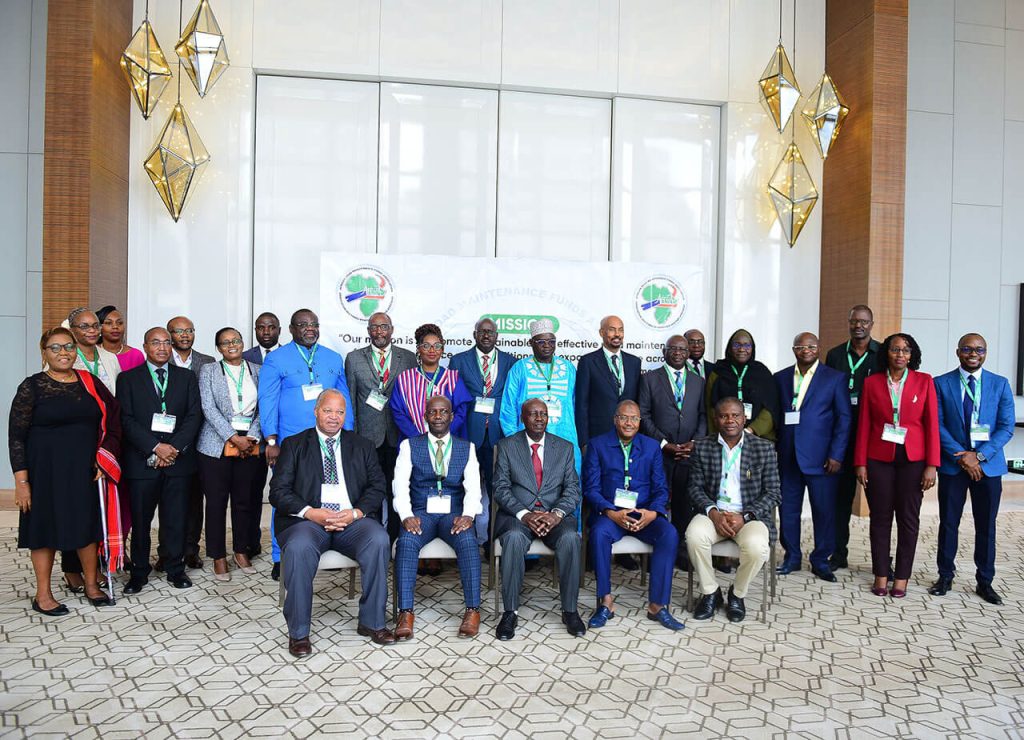
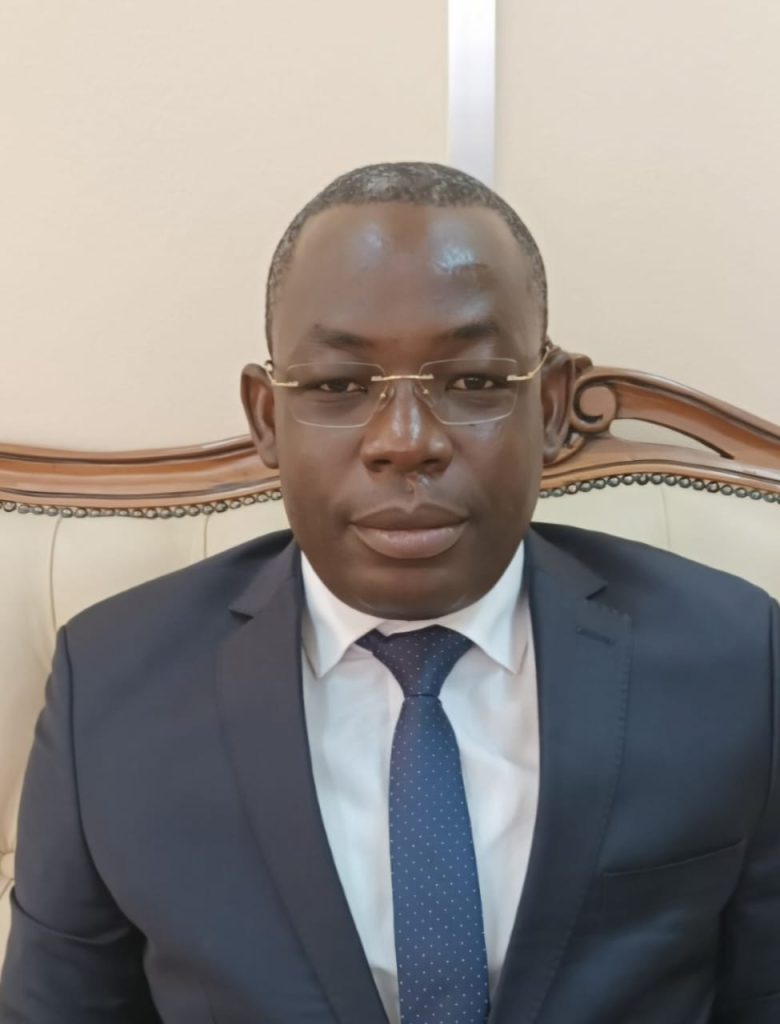
President of ARFMA - AFERA
Duties of the ARFMA-AFERA General Assembly: Guiding African Road Maintenance Funds
The General Assembly (GA) serves as the paramount authority within ARFMA-AFERA, holding responsibility for pivotal decisions concerning the governance, membership, and strategic direction of the Association. Its comprehensive duties are designed to ensure the effective oversight and advancement of African road maintenance funds and road infrastructure development. Key responsibilities of the GA include:
- Determining Focal Groups: Defining the various Focal Groups and their respective geographical regions to ensure localized and effective engagement in road asset management.
- Electing Executive Committee Members: Selecting members of the Executive Committee, who are crucial for the operational leadership of ARFMA-AFERA and its initiatives in African road networks.
- Appointing the Executive Secretary: Designating the Executive Secretary of ARFMA-AFERA, who leads the Permanent Executive Secretariat and oversees daily operations related to road maintenance in Africa.
- Approving Management Reports: Examining and officially approving the Association’s management report, ensuring transparency and accountability in the utilization of road maintenance funds.
- Approving Budgets and Financial Accounts: Reviewing and sanctioning the annual budgets and financial accounts, a critical step for the financial health and sustainability of African road infrastructure projects.
- Setting Member Contributions: Establishing the rate of member contributions based on recommendations from the Executive Secretariat or member states, ensuring equitable and sufficient funding for the Association’s activities.
- Deciding on Membership Applications: Examining and making decisions regarding new membership applications, thereby expanding the reach and influence of ARFMA-AFERA in African road sector development.
- Defining Membership Categories: Specifying categories of membership and determining the rights and obligations associated with each, fostering a clear framework for participation.
- Amending Bylaws and Regulations: Examining and deciding on proposed amendments to the Bylaws and Internal Regulations, ensuring the Association’s governance remains relevant and effective.
- Resolving Interpretive Issues: Addressing and resolving issues related to the interpretation of the Bylaws and Internal Regulations, maintaining clarity and consistency in operational guidelines.
- Ratifying Third-Party Decisions: Approving decisions involving the Association and third parties, safeguarding the interests and commitments of ARFMA-AFERA.
- Preventing and Arbitrating Disputes: Working to prevent and arbitrate disputes between members or between ARMFA bodies, promoting harmony and collaboration within the organization.
- Deciding on Sanctions: Making decisions on proposals for sanctions related to member conduct, upholding ethical standards and accountability.
- Declaring Dissolution: Possessing the authority to declare the dissolution of the Association, if such a critical decision becomes necessary.
These duties underscore the GA’s pivotal role in steering ARFMA-AFERA towards its objectives of promoting sustainable and efficient road maintenance across Africa.
Executive Committee (EXCO): The Managerial Arm of ARFMA-AFERA
The Executive Committee (EC) serves as the vital managerial arm of ARFMA-AFERA, playing a crucial role in the effective governance and operation of the Association. This committee is strategically composed to ensure comprehensive representation and leadership in advancing African road maintenance funds and road infrastructure development. The EC includes the Association’s President, the 1st and 2nd Vice Presidents (who are elected by the General Assembly), and the Chairpersons of ARFMAAFERA’s Regional Focal Groups, all listed in hierarchical order. This diverse composition reflects Africa’s geographical and linguistic richness, ensuring inclusive representation and a broad perspective on road asset management challenges and solutions across the continent.
In instances where a member is impeded or unavailable, the Executive Committee has the authority to designate another member to serve in their place, ensuring continuity and stability in leadership. This flexibility is essential for maintaining the momentum of initiatives aimed at improving African road networks.
The Executive Committee is entrusted with a range of key responsibilities that are fundamental to the day-to-day functioning and strategic direction of ARFMA-AFERA. These responsibilities include:
- Leading Day-to-Day Activities: Guiding and overseeing the daily operations of the Association, ensuring that all activities align with ARFMA-AFERA’s mission to promote sustainable road maintenance in Africa.
- Examining Internal Matters: Reviewing and addressing matters or questions raised within the Association, facilitating prompt and effective decision-making.
- Strengthening Member Capacity: Actively working to strengthen the capacity of ARFMA-AFERA members, providing them with the necessary tools and knowledge to manage Road Maintenance Funds (RMFs) more effectively.
- Providing Expertise: Offering specialized expertise to ARFMA-AFERA members, particularly in areas related to the efficient management of Road Maintenance Funds (RMFs), thereby enhancing their operational capabilities.
- Establishing Commissions: Forming commissions to undertake specific studies or tasks as mandated by the work program adopted by the General Assembly, ensuring that strategic objectives for African road infrastructure are met.
The Executive Committee serves a two-year mandate, ensuring a regular rotation of leadership and fresh perspectives. To promote balanced linguistic representation and inclusivity, the position of President alternates between countries of French-speaking and English-speaking origin. This rotational policy underscores ARFMA-AFERA’s commitment to fostering unity and cooperation across Africa’s diverse linguistic landscape in the pursuit of improved road asset management.

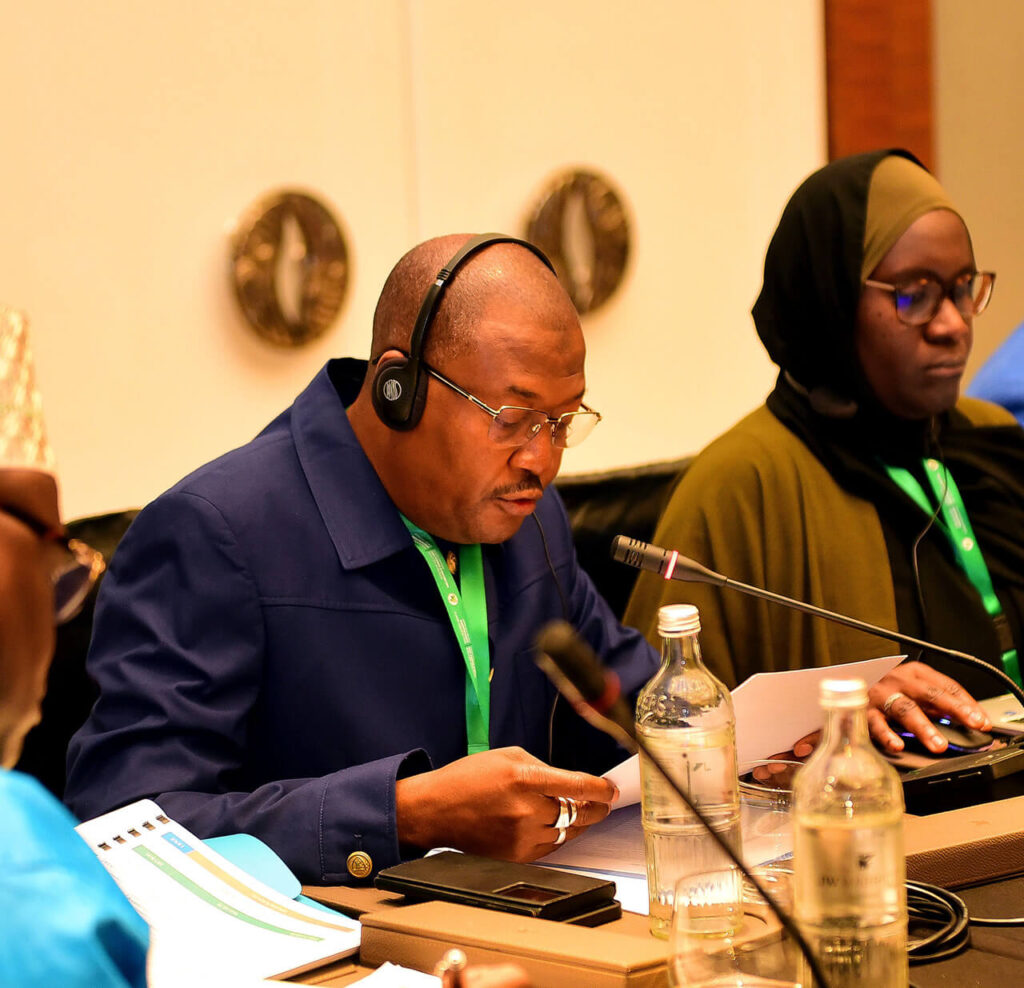
Executive Secretariat: The Operational Hub of ARFMA-AFERA
The Permanent Secretariat functions as the administrative and operational core of ARFMA-AFERA, playing a pivotal role in the day-to-day execution of the Association’s mission to advance African road maintenance funds and road infrastructure development. It is led by a highly qualified Executive Secretary, whose recruitment and supervision are meticulously managed by the Executive Committee. The Executive Committee is also responsible for appointing the members of the recruitment committee tasked with selecting the Executive Secretary, ensuring a rigorous and transparent selection process for this critical leadership role.
The Secretariat team is composed of key personnel, each contributing specialized expertise to support ARFMA-AFERA’s diverse operations and strategic objectives in African road networks:
- Administrative and Finance Director: Oversees the financial health and administrative efficiency of the Association, ensuring prudent management of road maintenance funds.
- Technical Director: Provides expert technical guidance and oversight for all road related initiatives, promoting best practices in road asset management.
- Legal Advisor: Ensures compliance with all legal and regulatory frameworks, safeguarding the Association’s interests and operations.
- Information and Communication Technology (ICT) Specialist: Manages and optimizes digital platforms and technological solutions for enhanced collaboration and knowledge sharing.
- Public Relations and Communications Officer: Manages external communications, promoting ARFMA-AFERA’s image and advocating for its mission in African road sector development.
- Liaison Officer: Facilitates effective communication and coordination with members, partners, and other stakeholders.
The Executive Secretary maintains a direct reporting line to the President of ARFMAAFERA and is fully accountable to the Executive Committee for all aspects of the Secretariat’s operations. This clear reporting structure ensures transparency, efficiency, and alignment with the Association’s strategic goals for sustainable road maintenance in Africa.
The roles, responsibilities, rights, and obligations of the Secretariat’s personnel are clearly defined by both internal and external regulations. These frameworks must be formally endorsed and approved by the Executive Committee, ensuring a robust and consistent operational environment for the effective management of African road infrastructure initiatives.
Ad Hoc Committees: Specialized Expertise for African Road Maintenance
ARFMA-AFERA leverages the expertise of specialized Ad Hoc Committees to address critical areas within African road maintenance and infrastructure development. These committees operate under the mandate of the Executive Committee, providing focused guidance and driving key initiatives. Each committee is chaired by a designated leader responsible for appointing its members, ensuring a concentration of relevant skills and experience.
-
1. Policy Advisory and Strategic Relations (PSR) Committee
The Policy Advisory and Strategic Relations (PSR) Committee is chaired by the Second Vice President of the Association. This committee is mandated to undertake a range of activities crucial for ARFMA-AFERA’s influence and growth in the African road sector:
Key Responsibilities:
- Providing policy and strategic advice: Offering expert guidance on policy matters affecting road maintenance funds and road asset management.
- Strategic planning and execution: Contributing to the development and implementation of ARFMA-AFERA’s strategic objectives for African road networks.
- Managing strategic relations: Cultivating and maintaining strong relationships with key partners and other stakeholders to foster collaboration and support for road infrastructure development.
- Overseeing public relations (PR) efforts: Enhancing ARFMA-AFERA’s public image and ensuring effective communication of its mission and achievements.
- Leading advocacy initiatives: Championing policies and reforms that promote sustainable road maintenance in Africa.
- Establishing communication guidelines: Developing clear guidelines for stakeholder communication and engagement, ensuring consistent messaging.
- Facilitating networking and knowledge management: Promoting platforms for exchange of information and best practices in road maintenance.
- Expanding ARFMA-AFERA membership: Actively working to grow the Association’s membership, increasing its reach and impact.
- Building capacity in policy and strategic areas: Strengthening the capabilities of members in policy formulation and strategic planning for African road funds.
-
2. Technical Research and Development (TRD) Committee
The Technical Research and Development (TRD) Committee is chaired by the First Vice President of the Association. This committee is instrumental in driving innovation and technical excellence in African road maintenance:
Key Responsibilities:
- Providing technical advice: Offering expert technical guidance on all aspects of road construction, maintenance, and rehabilitation.
- Establishing performance management guidelines: Developing frameworks for monitoring and evaluating the organization and its programs from a technical perspective, ensuring efficiency in road asset management.
- Leading research and development (R&D) initiatives: Spearheading research to generate new knowledge, tools, and methodologies for sustainable road maintenance.
- Overseeing project and program management: Ensuring effective planning, execution, and oversight of road-related projects and programs.
- Enhancing capacity in technical areas: Building the technical capabilities of members through training and knowledge transfer in African road infrastructure.
-
3. Finance, Risk, and Compliance (FRC) Committee
The Finance, Risk, and Compliance (FRC) Committee is chaired by a nominated member of the Executive Committee (EXCO). This committee is vital for ensuring the financial integrity and regulatory adherence of ARFMA-AFERA and its members:
Key Responsibilities:
- Providing advice, support, and capacity building: Offering guidance on corporate governance, financial management, risk management, and compliance with legal and regulatory frameworks relevant to road maintenance funds.
- Overseeing financial health: Monitoring the financial well-being of ARFMA-AFERA, including budget preparation, financial reporting, and audit processes, ensuring transparency in road infrastructure investments.
- Developing risk management strategies: Identifying, assessing, and mitigating potential risks to the Association’s operations and reputation.
- Ensuring compliance: Guaranteeing adherence to all applicable laws, regulations, and internal policies related to African road networks.
- Providing guidance on best practices: Offering insights into best practices in financial management and compliance to member Road Maintenance Funds.
- Building capacity in financial management: Strengthening members' capabilities in financial management, risk management, and compliance for sustainable road financing.
These specialized committees collectively contribute to ARFMA-AFERA’s comprehensive approach to addressing the multifaceted challenges and opportunities in African road maintenance and development.

